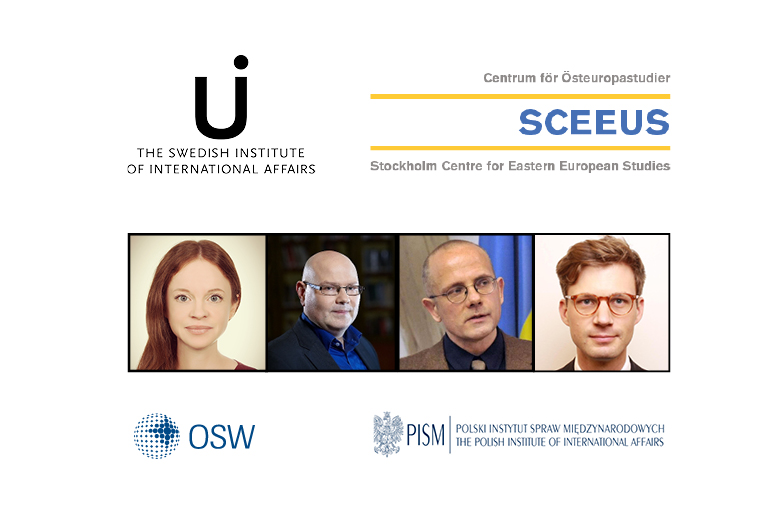
Security and Human Rights in Eastern Europe
The Stockholm Centre for Eastern European Studies (SCEEUS) at the Swedish Institute of International Affairs (UI) together with the Polish Institute of International Affairs (PISM) and the Centre for Eastern Studies (OSW) in Warsaw invited to a discussion about the protracted conflicts in Eastern Europe and their policy implications.
Thirty years after the break-up of the Soviet Union, the vision of a Europe whole, free and at peace is “unfinished business”, not least since several countries in Eastern Europe are still struggling with protracted conflicts. These conflicts are associated with human rights violations and constitute a systemic challenge to the European security order, with consequences beyond the region itself.
Lately, fear of an escalation of Russia’s ongoing aggression against Ukraine has also increased, as Russia masses troops and military equipment near Ukraine’s borders and demands security guarantees that would rule out any further eastward expansion of NATO and the deployment of weapons posing a threat to Russia in close proximity to its territory. Which significance and what consequences has the protracted conflicts for European Security and the OSCE?
An online discussion about these and related questions, including policy implications for the OSCE, took place to mark the final summary report "The Protracted Conflicts as Open Wounds for European Security" in the SCEEUS Report Series on Human Rights and Security in Eastern Europe and the upcoming handover of the OSCE chairpersonship from Sweden to Poland.
Speakers:
Andreas Umland, Analyst SCEEUS
John Zachau, Analyst SCEEUS
Discussants:
Marek Menkiszak, Head of the Russian Department at the Centre for Eastern Studies (OSW)
Anna Maria Dyner, Analyst at the International Security Programme at The Polish Institute of International Affairs (PISM)
The seminar was moderated by Fredrik Löjdquist, Director of the Stockholm Centre for Eastern European Studies.
Listen to the seminar here: